

Romania heads to historic presidential runoff as pro and anti-Ukraine candidate are neck-and-neck
Pro-European presidential candidate and Bucharest Mayor Nicusor Dan (L) attends a live electoral debate with far-right presidential candidate and AUR party leader George Simion (R) in Bucharest, Romania, on May 8, 2025. (Alex Nicodim / NurPhoto via Getty Images)
Eastern EuropeDays before the Romanian presidential election runoff, the two presidential hopefuls are neck-and-neck. According to the latest poll by AtlasIntel, far-right George Simion and liberal pro-EU Bucharest Mayor Nicusor Dan are tied at 48.2%.
Yet, another poll by CURS gives Simion 52% and Dan 48%.
Both are running on an anti-establishment platform in a country seeking change. Yet, with two drastically different views on the country's future, whoever takes the presidency will have the chance to change Romania for years to come.
The shocking vote
After Russian-friendly nationalist Simion, leader of the Alliance for the Union of Romanians (AUR), took the first round by storm with 41% of the votes on May 5, the government coalition formed by the mainstream National Liberal Party, the Social Democrat Party and the Hungarian minority UDMR — whose common candidate Crin Antonescu came third with 20% of the vote — dismantled.
The national currency, the leu, fell to a historic low when compared to the euro and dollar, despite the Romanian Central Bank's billion-euro effort to stabilize the national currency.
Scoring a mere 21% of the votes, Dan's chances to win the presidency seemed dim without an incredibly high mass mobilization of the electorate.
The first opinion poll made by Verified and published by Dan after the first round showed Simion winning with almost 55% of the votes in the runoff. The poll excluded Romania's diaspora, which is backing Simion. There has also been a tendency for Simion voters to refuse to participate in polls.
Running as an independent and relying on private donations, Dan has gained the support of the liberal Save Romania Union (USR), the party he founded in 2016 but left next year over the question of LGBTQ+ rights.
Dan was opposed to giving same-sex partnerships the same rights as those of heterosexual couples.
For the runoff, Dan has also garnered the support of the National Liberal Party and the Hungarian minority party UDMR. The Social Democratic Party, Romania's biggest political party, officially abstained from endorsing a candidate. Antonescu, who came third, dismissed both candidates.
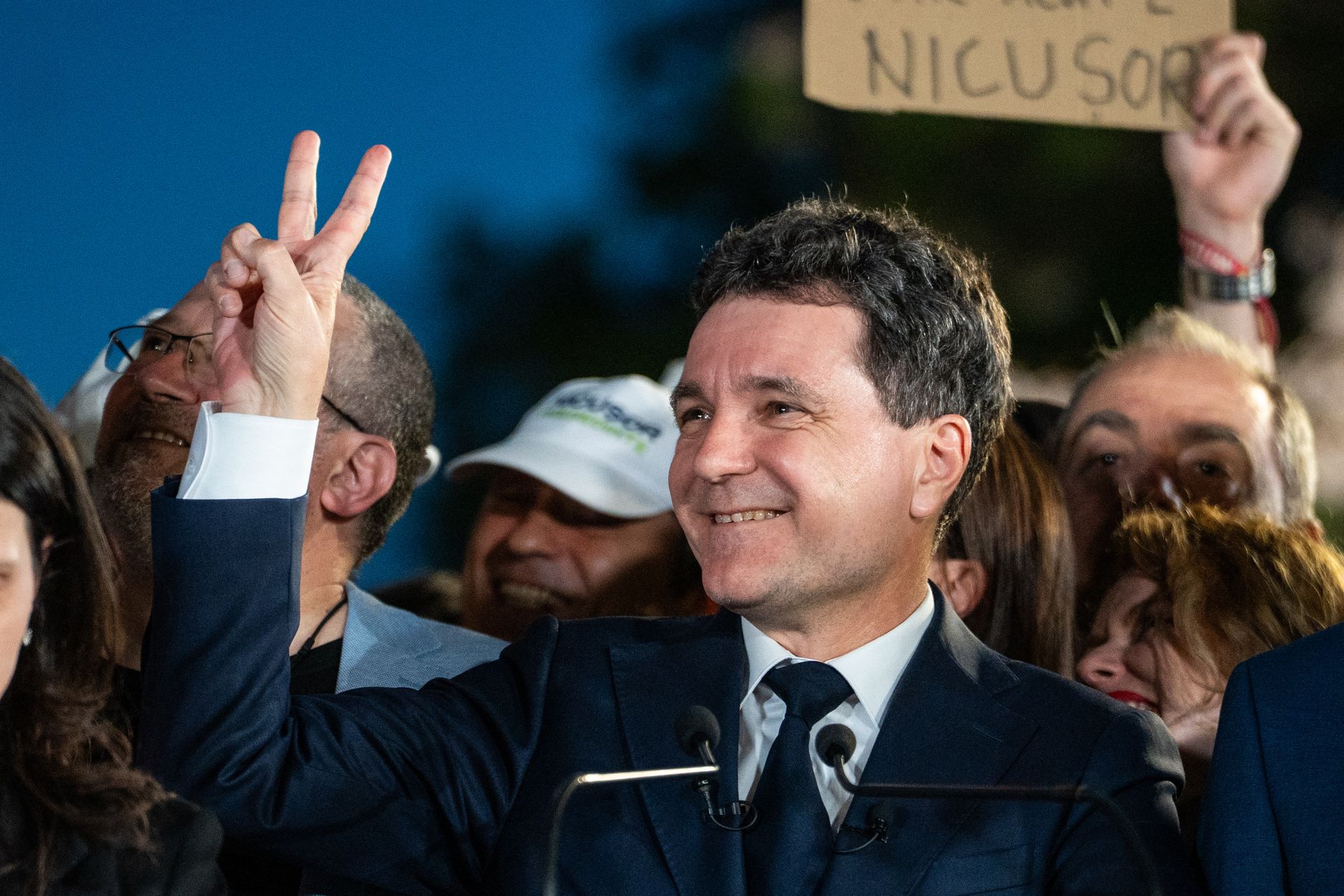
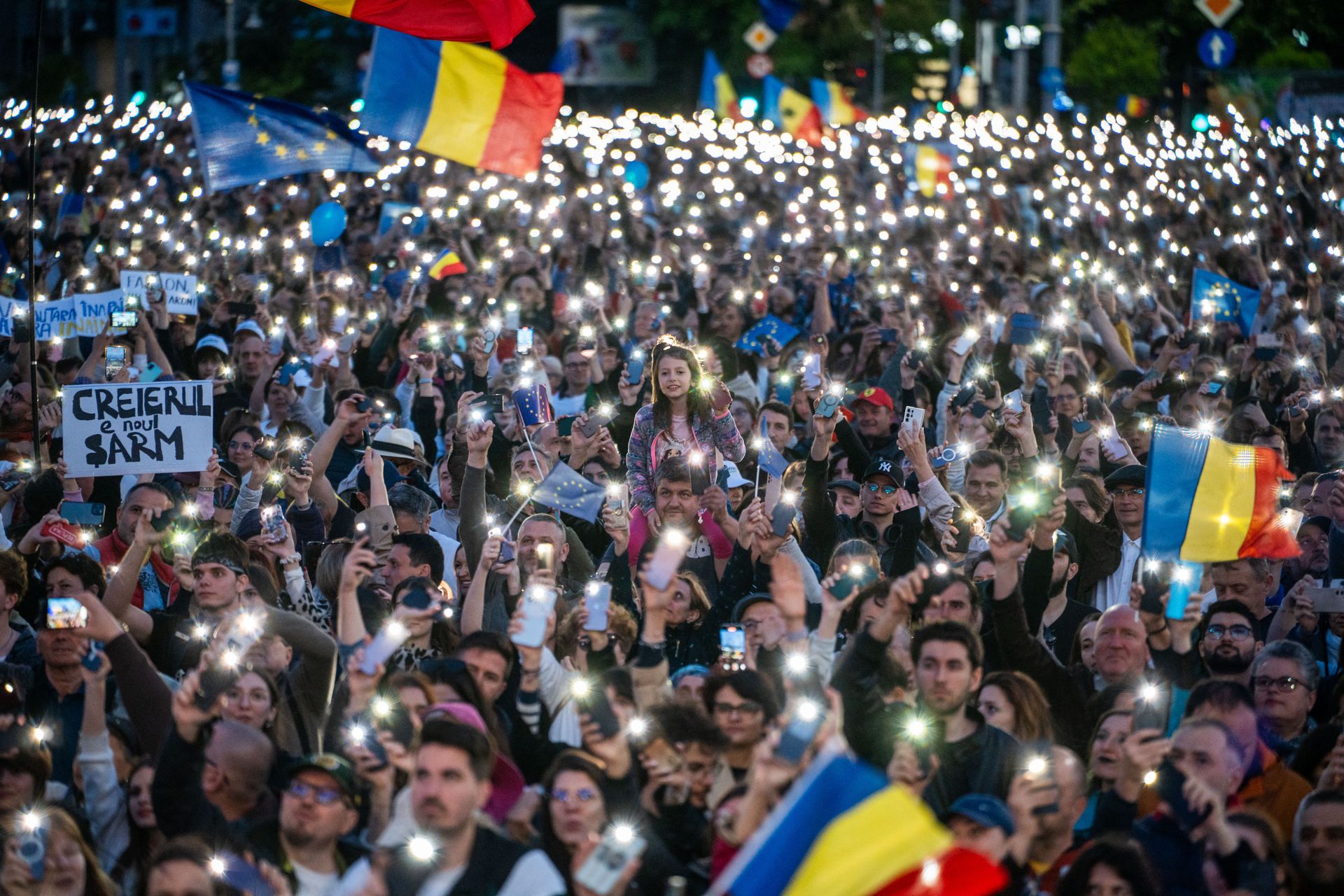
"There is no precedent for this runoff," political scientist Claudiu Craciun told the Kyiv Independent.
"In 2004, 2009, and 2014, we had candidates who took 40% of the votes in the first round of presidential elections, and then they lost in the runoff. But they were center-left candidates defeated by center-right candidates, from the two major parties representing those ideological positions. Now, historical parties are in decline, for the second time in a row, they cannot bring candidates into the runoff, which means that this is a systemic issue," Craciun added.
"We have a new situation, with the candidates of two smaller parties, USR, on the relatively progressive neoliberal center, and AUR, on the ultra-conservative side. We can anticipate that towns and cities, wealthier, more educated people will vote for Dan, but it's not clear how religious groups will vote, or how social democrats will be split," he added.
In the first televised debate between Simion and Dan, which lasted over four hours on May 8, national security and Russia's war against Ukraine were major topics. The relationship with Moldova, the cost of living crisis, the public health sector and foreign investment were also widely discussed.
"In the debate, Nicusor Dan showed a different facet, which took Simion by surprise: he was much more combative and managed to project the image of a leader more powerfully," journalist Ioana Dogioiu told the Kyiv Independent.
"He was resilient and spontaneous — things that people said he'd lacked before. He managed to stick the financial crisis to Simion, to say that the chaos he created scared investors, and to show Simion's duplicity by confronting him on his contradictory claims, which generate uncertainty and mistrust. But I'm not sure this is enough to create (additional) 3.5 million votes, which is how much Dan needs in order to win," Dogioiu added.
Simion, who is the executive vice president of the European Conservatives and Reformists Party, tried to appear more moderate and calm, repeatedly invoking the example of Italian Prime Minister Georgia Meloni, while also tying himself to the Trump administration.
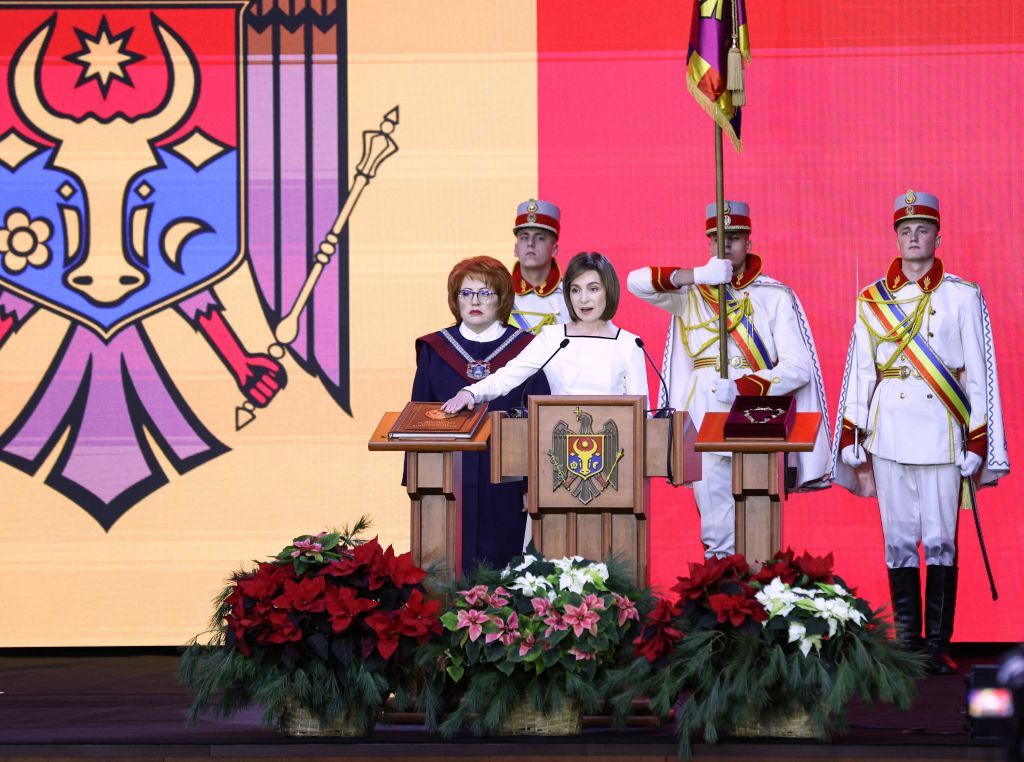
Dan and Simion on Ukraine
In the debate, while Dan pleaded for further support of Ukraine, Simion, who is persona non grata in both Ukraine and Moldova, emulated banned Russian-linked Calin Georgescu, saying that Romania has to stay "neutral" and only spend money on itself rather than give military aid to its neighbor.
Dogioiu says Simion's position on the war may garner some support, fueling old tensions between Romania and Ukraine, concerning Romanian minority rights. It can also give a voice to the frustrations with the market disruption caused by cheap Ukrainian grains passing through Romania since the start of Russia's full-scale invasion.
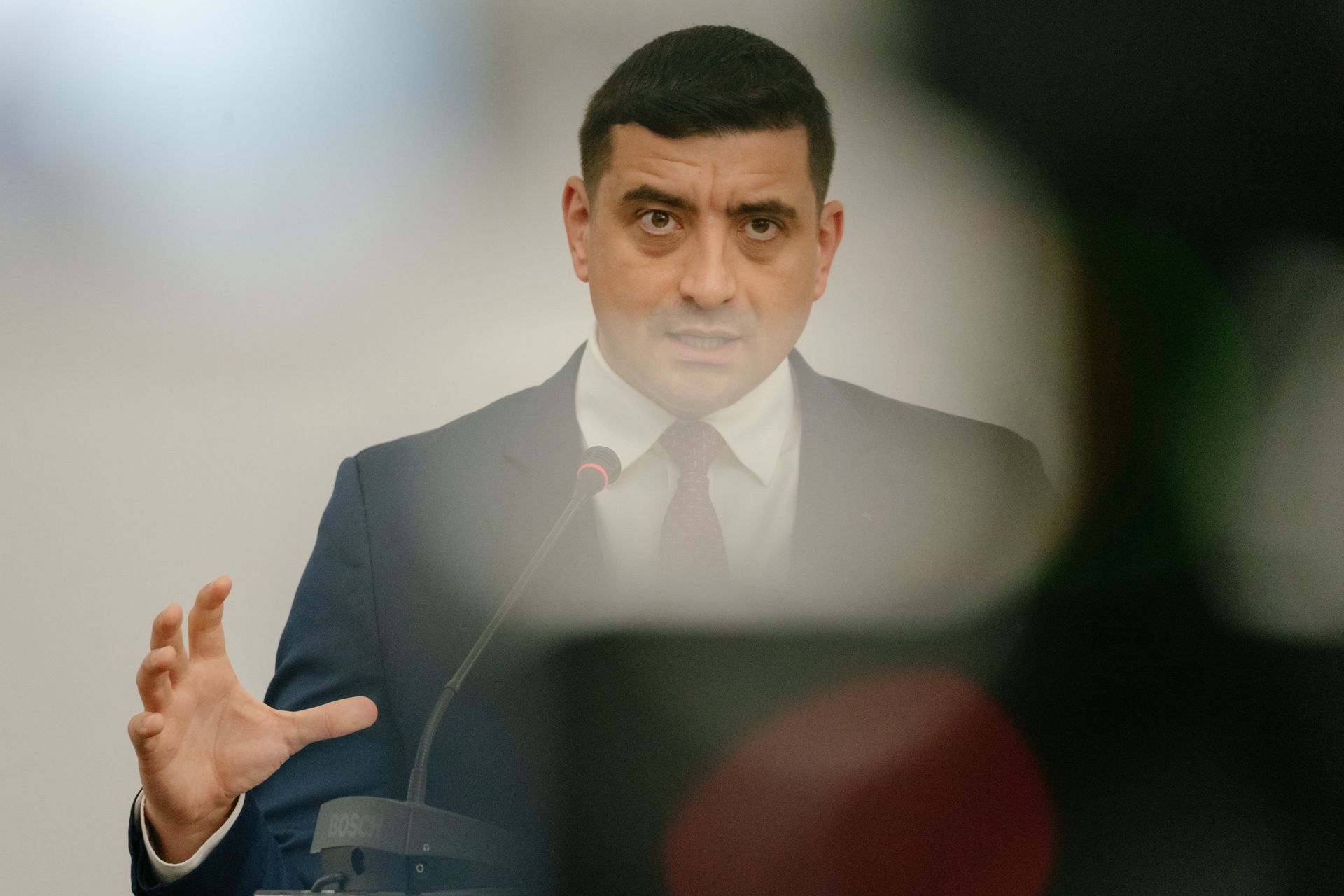
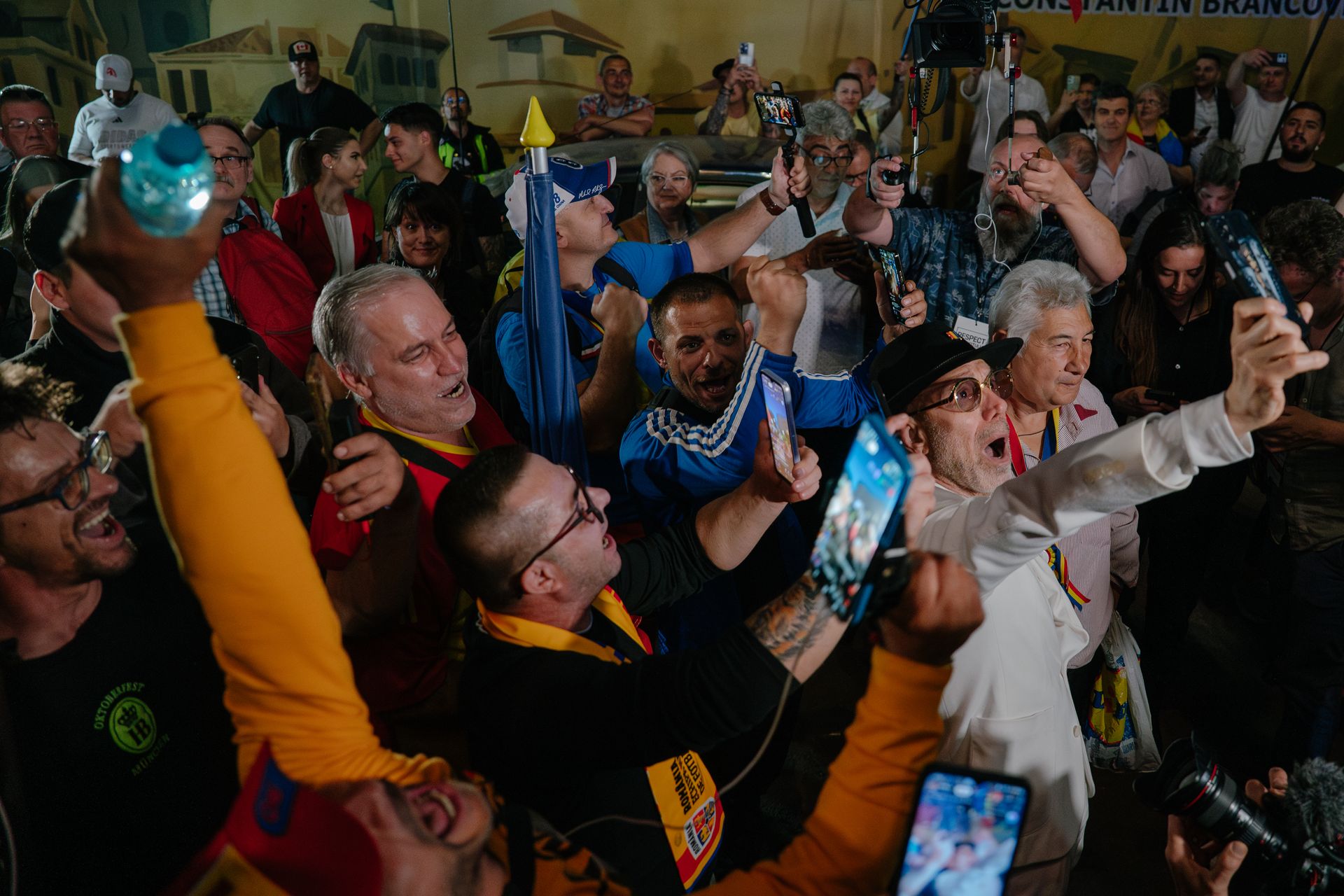
But according to political scientist Cristian Preda, post-communist Romania has never had candidates openly supported by Russia until Georgescu and Simion.
On election day, Kremlin ideologist Alexandr Dugin said that Simion's success "is Georgescu's win" and "a chance" for Russia.
"If Simion wins, we may get the old, radical, extremist, anti-media Simion, or the new, runoff Simion, who is more pro-European, more moderate."
"Romanians have mobilized before for smaller bets," Preda told the Kyiv Independent. "It wouldn't be bad for Ukraine and Moldova to provide more details about why Simion was made persona non grata now. This would clarify the situation even better. How do you elect a president who can't enter two such important neighboring countries?"
Further on, Preda argues that Simion is perceived as a candidate who will "prolong the electoral dispute" after Romanians have been exhausted from voting in five different elections — parliamentary, local, European, and two sets of presidential ones.
"Simion says he would organize a referendum to sack the members of the Constitutional Court who canceled the Nov. 24 presidential elections (citing malicious foreign influence), and organize snap elections," Preda said.
"We've never had snap elections. This gives a sense of instability."
What happens if Simion wins?
"If Simion wins, we may get the old, radical, extremist, anti-media Simion, or the new, runoff Simion, who is more pro-European, more moderate. Let's say he goes through a 'Melonization' process," Dogioiu said.
"It will take time to convince international markets that he is not a radical; will his party, AUR, also go through a 'Melonization' process? Even in the best-case scenario, it will take time to gain the trust of the markets," she added.
"He is trying to appeal to both radicalized Georgescu voters and to the more moderate electorate, which creates uncertainty but not panic."
In addition to the financial crisis and the potential loss of EU funds, a Simion victory would isolate Romania, Craciun said.
"He will play in the Fico-Orban field, building a pressure group within the EU. It's enough for him to delay initiatives, such as military aid to Ukraine, to become a malign actor."
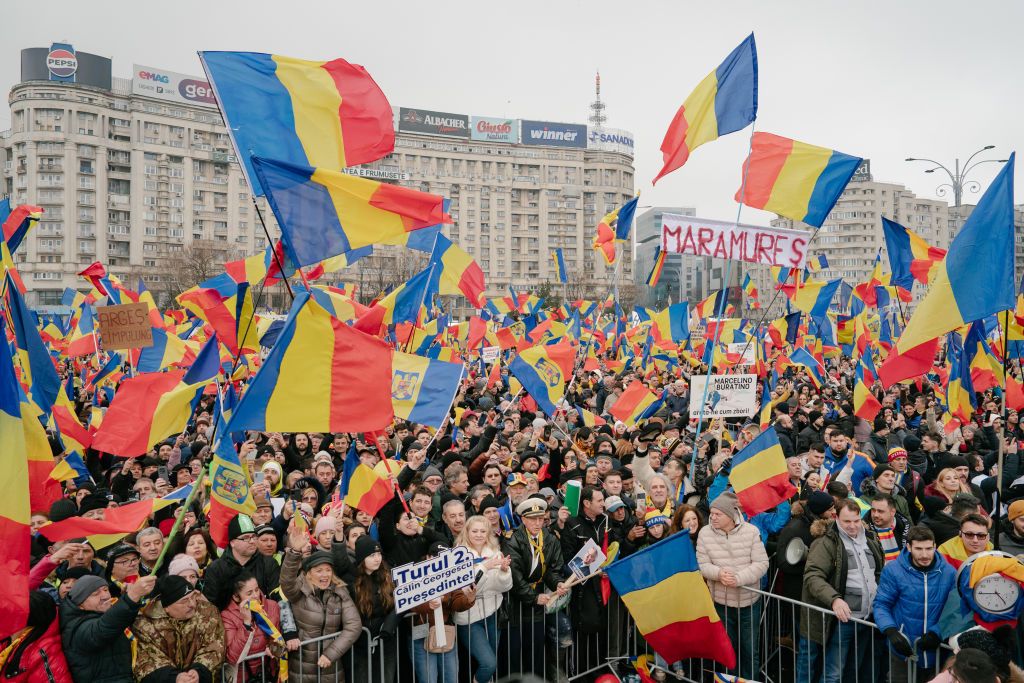
Most Popular


Journalist Roshchyna's body missing organs after Russian captivity, investigation says

Ukrainian sea drone downs Russian fighter jet in 'world-first' strike, intelligence says

Ukraine is sending the war back to Russia — just in time for Victory Day

Kremlin says Russia ready for mass mobilization like in WWII 'at any moment'
Editors' Picks

How medics of Ukraine’s 3rd Assault Brigade deal with horrors of drone warfare

As Russia trains abducted children for war, Ukraine fights uphill battle to bring them home

'I just hate the Russians' — Kyiv district recovers from drone strike as ceasefire remains elusive



